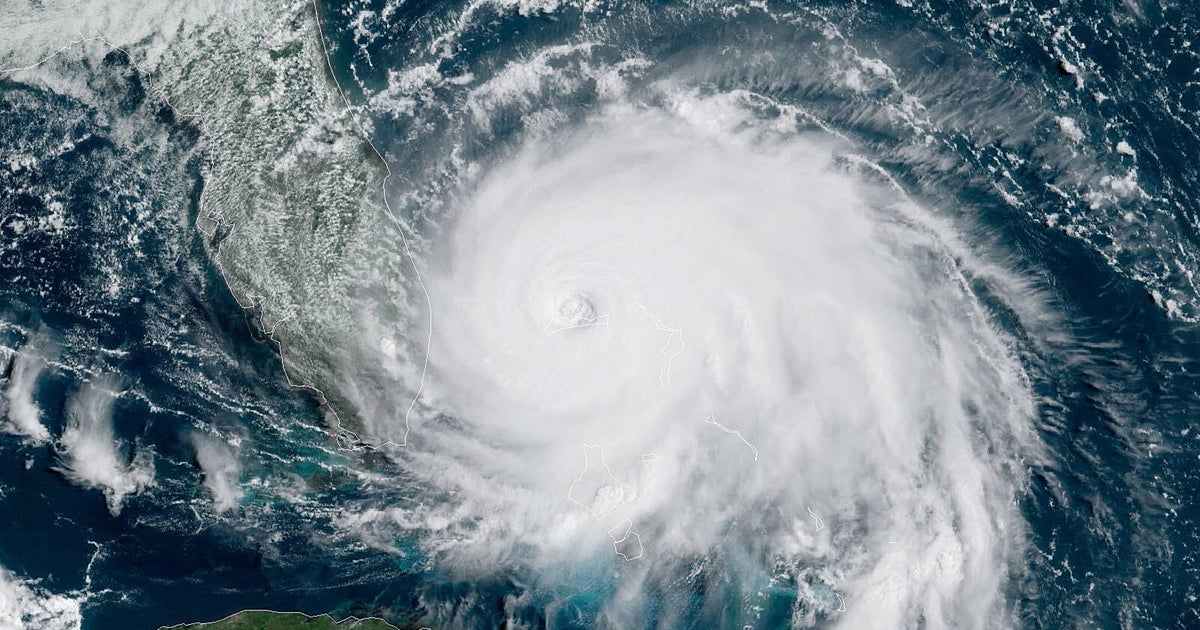Florida Gov. Ron DeSantis drew some applause last week when he told a crowd in Crystal River that during this year’s Atlantic storm season, “we did not have a hurricane impact, not only in Florida, but the entire continental United States.”
DeSantis acknowledged that, technically, the hurricane season doesn’t end until Nov. 30. But with no storms on the horizon, he added that “most people feel like this has been a positive season for all of us. And we needed it.”
The relief is understandable, but don’t view it as a trend.
Florida took direct hits from six hurricanes, including four that were Category 3 or stronger, from 2022 to 2024. Crystal River and other parts of Citrus County, as with most of the state’s gulf coast, sustained damage in all three hurricanes that made landfall in Florida in 2024. And the storm-brewing conditions are still there — warmer ocean waters and a cool La Nina weather pattern that results in weaker vertical wind shear needed to cut down storm winds.
The 2025 season has included 13 named storms, just meeting predictions of 13 to 19 storms. Also, the season has had five hurricanes, with four reaching Category 3 and three reaching the most-severe Category 5.
Based on National Oceanic and Atmospheric Administration standards, 2025 was considered a slightly above-normal season because of a formula that takes into account the strength and duration of storms.
Still, just a single named system made landfall in the U.S., as Tropical Storm Chantal hit northern South Carolina on July 6. The gulf waters were essentially inactive all season.
2025 Atlantic hurricane season outcome partially attributed to “luck”
Mark Wool, warning coordination meteorologist at the National Weather Service’s Tallahassee office, attributed part of the season’s outcome to “luck.” But he said several conditions also worked to give Florida and the U.S. mainland a hurricane-free season.
“The subtropical Atlantic ridge, which is always there, was shifted a little further east,” he said. “So, there was enough room for the recurvature of storms to occur before the storms actually made it all the way west (from Africa). That was a part of it. Another thing was, we had kind of a persistent trough in the eastern United States, which allowed some fronts to come just in the nick of time to kind of help scoot them to recurve (north) before they could make landfall.”
The Atlantic also saw a unique phenomenon called the “Fujiwhara effect,” which is usually seen in the Pacific, with Hurricane Humberto in September getting close enough to pull Hurricane Imelda away from the U.S. east coast.
“The presence of Umberto dragged Imelda out to sea, instead of letting that system come into the Carolinas,” Wool said.
A season free of hurricanes isn’t as unique as it may appear, as over the past 75 years one in five seasons have gone without a U.S. landfall, Wool said.
So don’t take a one-off season as a trend.
2025 Atlantic hurricane season has no bearing on what could come during 2026 season
“Just because we had a beneficial hurricane season from a United States perspective has absolutely no bearing whatsoever on what next season is going to be like,” Wool said.
Despite the lack of action in the U.S., the 2025 season will be remembered for the giant, deadly Hurricane Melissa, a Category 5 storm that crashed into Jamaica on Oct 28, before causing damage in Cuba and the Bahamas. At least 102 people died.
When Melissa reached Jamaica at one point, it had sustained winds of 185 mph and produced the highest ever recorded wind gust in a tropical cyclone at 252 mph, according to the World Meteorological Organization.
As a comparison, Hurricane Michael hit the Florida Panhandle near Tyndall Air Force Base in 2018 with sustained winds of 161 mph. Ian hit Lee County in 2022 at 155 mph. Andrew’s winds reached 165 mph as it pounded South Florida in 1992.
The meteorological company AccuWeather cautioned storm seasons might be evolving with the changing climate.
“Every hurricane season is unique, but the overall frequency and intensity of storms in the Atlantic basin may be evolving,” AccuWeather Chief Meteorologist Jonathan Porter said in a news release. “In a warming world, there are indications that there can be fewer storms overall, but those that do develop can be more likely to intensify rapidly. This could lead to more seasons marked by extended stretches with no tropical activity, separated by short bursts with powerful hurricanes, similar to what has happened in the last two Atlantic hurricane seasons.”



